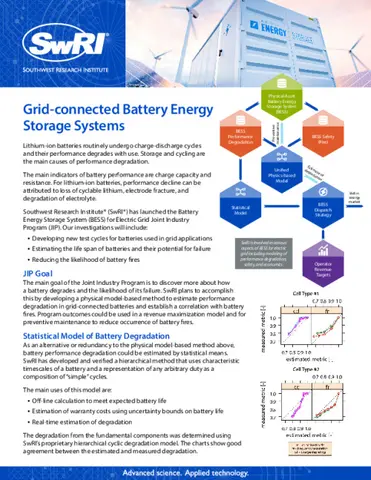Batteries have become an integral part of our everyday lives, and safety is an essential component. The United Nations established the UN DOT 38.3 test methods and procedures to ensure lithium-ion batteries are suitable for transport. These test methods are designed to simulate many possible extreme conditions a battery may be subjected to during international transportation.
Southwest Research Institute (SwRI) is a one-stop shop to meet all your battery testing needs. We conduct all tests of the UN 38.3 standard at our campus in San Antonio, Texas, and we have testing facilities in Michigan to serve the automotive industry. All testing is managed by experienced engineering staff to provide immediate technical solutions.
Contact Scott Sjovall or call +1 210 522 5065 to inquire about testing services.
UN DOT 38.3 DOT Certification and Standard
The following test procedures are included in UN 38.3:
- T1 – Altitude Simulation (Simulation to 50,000 ft altitude atmosphere)
- T2 – Thermal Test (12-hour dwell times at -40°C and 72°C, repeated 10 times)
- T3 – Vibration (1G from 7Hz to 18Hz, 2g from >18Hz to 200Hz, 3-hour test in each axis)
- T4 – Shock (34.6g shock pulses in positive and negative direction)
- T5 – External Short Circuit (Pack conditioned at 57C, short maintained for 1-hour or more)
- T6 – Impact (9.1kg mass dropped from 61cm)
- T7 – Overcharge (Charge at twice manufacturer’s recommended current)
- T8 – Forced Discharge (12 V power supply connected in series at maximum recommended current)
Overcharge Tolerance of Aged LMO Cells
Learn how aging in lithium ion manganese oxide (LMO) battery cells can lead to swelling, overcharging, failure and other risks.
Related Services
We provide R&D and analysis services across the electric powertrain.






